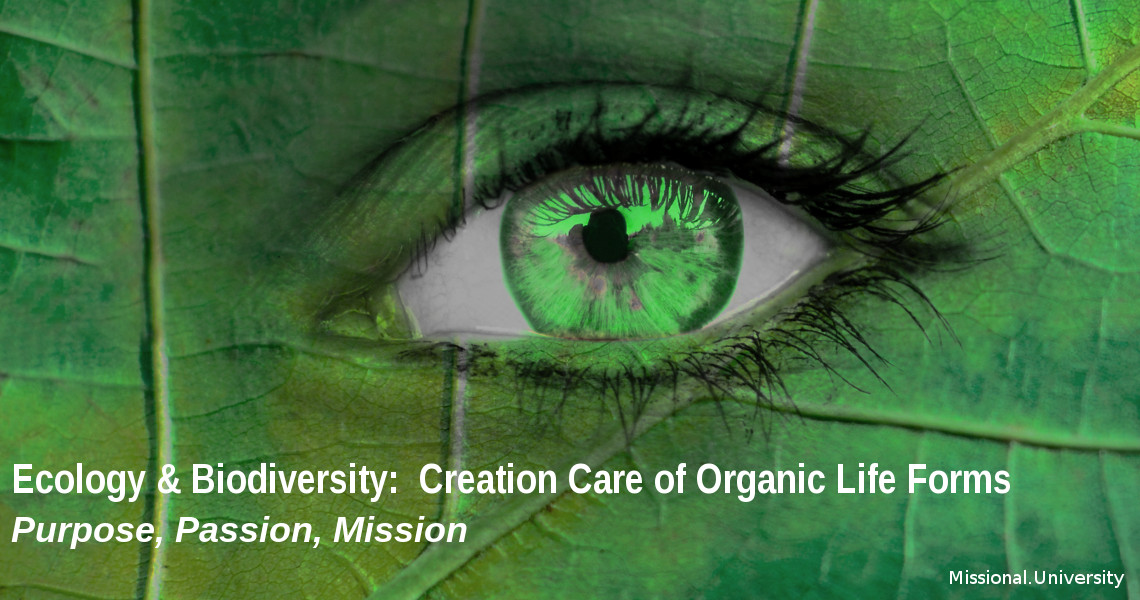DEPARTMENT OF ECOLOGY & BIODIVERSITY
Explore Ecology and Biodiversity
Academic Programs
Dual Enrollment Academies
Certificate Programs
Associate Certificate programs
Undergraduate Certificate programs
Graduate Certificate programs
- Advanced Conservation & Restoration Ecology
- Biocomplexity and Systems Ecology
- Biological Ecology
- Ecology, Resilience and the Urban Environment
- Ecotheology, Ethnoscience & Communication Across Cultures
- Natural Resource Planning & Management
- Sustainable Aquatic Ecosystems
Degree Programs
Associate Degrees
Bachelor Completion Degrees
Bachelor 2+2 Degrees
Masters Degrees
Doctoral Degrees
Course Descriptions
Undergraduate Courses
Graduate Courses
Resources
Contact
- Still Have Questions?
- Contact Admissions
Calendar

About the Department
The Department of Ecology & Biodiversity guides students from a biblical perspective of creationism, ecotheology and ecomissiology through a wide range of ecology courses dealing with marine, marshland, rangeland and wildlife ecology. The faculty have designed the major requirements to ensure that students have a broad and balanced exposure to biological and chemical processes and biomathmatical skills to analyze various physical environments. The curriculum begins with fundamentals of biology, environmental biology, biological terminology, general chemistry and chemistry of organic and biomolecules at the Associate level. The Bachelor degree completion program builds with courses in ecology, biodiversity, biological systems, conservation and management.
The graduate level extends the study of ecology and biodiversity by combining advanced biostatistical methods, bioethics, and theories of ecosystem sustainability and resilience. Students investigate the mechanisms that regulate biodiversity and foster the maintenance of diverse ecosystem environments. By obtaining a process-based understanding of the ways species interact from the micro to the landscape level in ecosystems, students learn to predict the future impacts of climate and land-use changes and plan approaches to carbon sequestration, water safety, and disease suppression.
Areas of Study
The Department of Ecology & Diversity offers students a variety of courses in several areas, including:
- Biology & Chemistry Foundations: Courses introduce students to biological and chemical terminology, concepts and processes that appear in diverse ecosystems.
- Biological Ecology & Biodiversity: Courses include marine biology, river & lake biology, biogeography, plant ecology, and behavorial ecology.
- Conservation, Management & Restoration Ecology: Courses include hydrologic processes in soils, coastal & wet ecology and management, international agriculture systems; restoration and landscape ecology and conservation biology.
Learning Outcomes
Students who complete the Bachelor of Ecological Mission in Ecology & Biodiversity will be able to:
- Articulate a theological foundation for ecology and biodiversity studies
- Investigate ecological concepts and scientific principles related to natural resource management
- Describe biological, physical, and chemical properties of soil.
- Compare and contrast principles of hydrology including groundwater and surface water flow measurement methods
- Identify morphological characteristics of grasses, grass-like plants, forbs and woody plants
- Investigate the effects of wildlife on rangeland ecology
- Investigate the interrelationships between life forms and marine, river & lake, and coastal wetland ecosystems.
Students who complete the Master of Ecological Mission in Ecology, Biodiversity & Ecosystems will be able to:
- Demonstrate advanced knowledge and understanding of ecosystem processes and their value
- Demonstrate knowledge and understanding of the multi-dimensionality of maintaining or restoring ecosystem health
- Demonstrate knowledge and understanding of the application of environmental laws and policies globally
- Be able to provide much-needed service to improve health and sustainability of ecosystems, resulting in more sustainable conditions in diverse global environments
- Be prepared to work with various agencies, including governmental and mission agencies, to restore and maintain the biodiversity and environmental health that are the backbones of sustainability.
- Demonstrate hands-on experience in planning, executing, analyzing, and reporting on a research process that culminates in a thesis